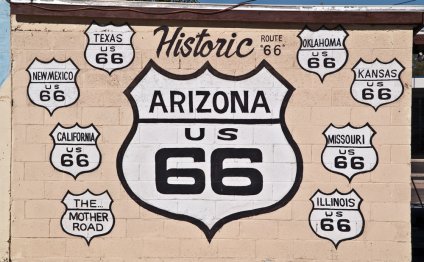
Home Search Arizona
 Under the Fourth Amendment associated with the U.S. Constitution therefore the Arizona Constitution, you have a right becoming free of unreasonable searches and seizures.
Under the Fourth Amendment associated with the U.S. Constitution therefore the Arizona Constitution, you have a right becoming free of unreasonable searches and seizures.
Which means that in most cases, a warrant is needed to search your property, with couple of exceptions.
The exclusions include situations where “exigent conditions” exist.
This allows authorities which will make a warrantless entry if they have actually probable cause to arrest a suspect that has fled, or even to end the imminent destruction of evidence.
Another exclusion is the fact that authorities could make a safety sweep incident to a lawful arrest.
One more exclusion is an entry due to an objectively reasonable foundation for thinking someone in the household needs instant aid.
The Incident
In cases like this, police officers and paramedics went to the defendant’s residence after getting phone calls from neighbors, whining the defendant had been behaving erratically.
Whenever police and paramedics appeared, the defendant told them that he and his family members have been dealing with up to seven pounds of mercury inside residence, which was becoming held in your home in a glass jar.
The paramedics were concerned about contamination, in line with the defendant’s statements and called the Fire division into the scene.
The Fire Department ordered the defendant is “rinsed off.” The guy cooperated and was transported to the hospital for further evaluation.
After the suspect had been taken fully to the medical facility, the firefighter, and police officer chose to enter he residence to collect information about the mercury, with all the belief that health personnel may require these records for man’s therapy.
The officer also stated that they believed it was necessary to type in order to find out what they “were actually dealing with.”
After going into the residence, the officer detected a smell of marijuana, which he traced into energy room. There the officer found several cannabis flowers.
The officer after that left and gone back to your home with a legitimate search warrant.
Upon return, the officer re-entered home and seized the Marijuana.
Even though ownership of mercury is certainly not unlawful, no mercury ended up being found.
However, the officer saw “indications” of it into the hall on the floor, which didn't pose a risk. The Fire Department simply concluded just needed to be washed up.
Legal Procedures and Opinions
The trial court determined there have been “exigent circumstances” when it comes to warrantless search, admitted the marijuana as research, and fundamentally found the defendant guilty.
The defendant appealed regarding the reasons that motion to control the data needs been granted, rather than rejected.
The legal of Appeals agreed that warrantless search had not been justified and didn't fall within some of the exclusions to a warrantless search of a suspect’s house.
The Appeals court reversed the reduced court’s decision and held that no exclusions applied to the incident that warranted a warrantless search and seizure to the residence.
Hawaii prosecution after that requested the Arizona Supreme Court to examine the problem of whether or not the “community caretaking exception” applied.
The AZ Supreme Court presented that neither exclusion of exigent situations or disaster aid put on this case, plus the warrantless entry to the house had been legal.
The court explained that although police were worried about the big volume of mercury the suspect reported was in the home, mercury control isn’t illegal.
There was no research that the existence of mercury presented a sudden threat. To enable exigent circumstances to occur, law enforcement would have to have experienced probable cause that there had been criminal activity in your home, not merely the control of mercury.
The Court recognized the authorities officers’ different functions in the neighborhood that include caretaking and municipal services.
But this doesn't extend the authorities officials exemptions from the warrant requirement simply because they tend to be involved with those functions.
The Court differentiated an early on instance where community caretaking applied as an exclusion on grounds it involved a vehicle, versus a property.
Mentioning precedent cases involving search and seizure controversies, the Arizona Supreme legal held that there's a larger hope of privacy in a home than a car. For that reason, town caretaking exception doesn't affect domiciles.
Particularly, the Court explained that it achieved the final outcome it did since the Arizona Constitution Article 2, § 8 more clearly safeguards houses compared to national constitution does.
The legal failed to clearly think about the complications presented by A.R.S. 36-603. Under that Arizona law, whenever a county board of wellness or regional wellness department in finds it required to enter a building so that you can avoid or eliminate a nuisance and is rejected entry, an officer regarding the division could make a complaint toward justice associated with serenity.
Under those conditions, the justice of the comfort will then issue a warrant directing the comfort officer to destroy or get rid of the nuisance during daylight hours.
But predicated on this ruling, any evidence of criminal activity obtained during such an entry would not be admissible.
Arizona Privacy Liberties
“The Arizona Constitution ensures that people shall not be disturbed inside their personal matters or their house invaded without legal authority”.
In cases like this, the Arizona Supreme Court examined the language in Arizona Constitution, particularly those involving Privacy liberties.
Article II part 8 associated with Arizona Constitution reads:
“No individual will probably be disturbed inside the private affairs, or his residence invaded, without authority of legislation.”
The Conclusions associated with AZ Supreme legal had been that Arizona’s affords much more defenses in its specific language compared to US Constitution.
United States Constitution Privacy Liberties
The US Constitution’s Fourth Amendment regarding privacy rights extends here defenses:
“The right of those become safe inside their people, houses, reports, and effects, against unreasonable online searches and seizures, shall not be broken, and no warrants shall issue, but upon possible cause, sustained by oath or affirmation, and especially describing the spot is searched, and individuals or what to be seized”.
Whereby, the Federal law limits the protections for persons to-be protected inside their homes, and against illegal search and seizures.
On the other hand, the Arizona Constitution means that people shall not be disrupted inside their private affairs or their home invaded without lawful authority.
Thus, holding that the Arizona Constitution affords greater protections in some circumstances citing Arizona v. Bolt.
Community Caretaking Doctrine – the reason why it couldn't Apply
Share this Post
Related posts
Search Homes by MLS number
Get A Hold Of San Antonio, TX homes for sale as well as other San Antonio real-estate on realtor.com®. Research San Antonio…
Read MoreArizona Real Estate Trends
Phoenix s home resale inventories decreased dramatically, with a -100 percent reduced since January 2017. Distressed properties…
Read More















